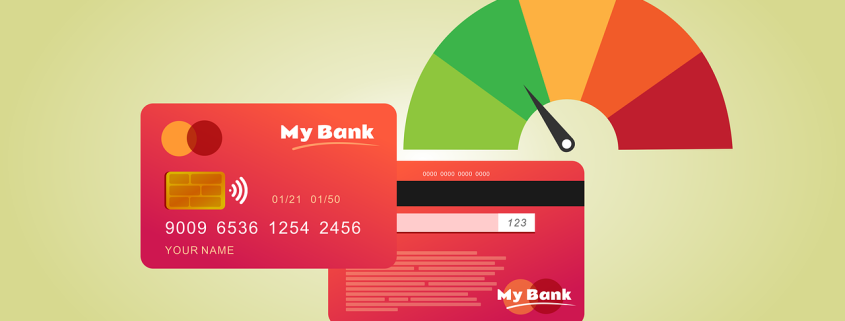What Is a Credit Limit? How a Credit Limit Works
Estimated reading time: 6 minutes
Last updated on November 21st, 2025 at 04:36 pm
Your credit limit is the maximum amount your lender allows you to borrow on a credit card at any one time. It’s set by your credit card provider based on your income, spending history and how well you’ve managed credit in the past.
Think of it as a borrowing cap: you can use up to that limit each month, repay what you owe, and then use it again as long as you stay within the agreed amount. If you pay off your balance in full every month, you’ll avoid interest and keep your available credit free for reuse. Citizens Advice also offers guidance on managing your credit limit and what to do if your lender changes it.
Key Points
- A credit limit is how much you are allowed to spend on a credit card
- The amount is determined by the provider assessing your income, affordability, credit score and history
- You can request a higher credit limit if you would like access to more credit
- Paying off your credit card on time will usually cost 0%
- Your credit limit can rarely be increased until it has been at least 3 or 6 months of issuing a new card and it has been consistently paid on time
What Is The Definition Of A Credit Limit?
A credit limit is the total amount of credit a lender makes available to you on your card. It’s essentially the ceiling of what you can spend or owe at any given time. The amount is determined by your income, existing debts, and credit history, all of which help lenders assess how much risk you represent.

The higher your income and the stronger your repayment record, the more likely you are to be offered a higher credit limit. For most people starting out with credit, this might be a few hundred pounds, rising over time as trust is built with the lender.
Example Of A Credit Limit
Let’s look at an example:
- John applies for a new credit card and is approved with a £500 credit limit. This means he can spend up to £500 on his card, for example, on groceries, bills, or online shopping.
- If John pays off the full £500 balance before the due date, his available credit resets to £500 again.
- But if he only pays back £100, he’ll have £400 of available credit left until the rest is cleared.
Managing credit responsibly like this helps improve your credit score and may make you eligible for higher limits later on.
How Can You Increase Your Credit Limit?
You can usually increase your credit limit by showing your lender that you’re a reliable borrower. That means making on-time payments, keeping your balance low relative to your limit, and avoiding missed or late fees.
Most credit card providers want to see at least three to six months of consistent payments before they’ll consider an increase. Some may offer automatic reviews, while others require you to request one directly through your online account or mobile app.
Building a positive payment history and keeping your credit utilisation (the amount you use compared to your limit) below 30% are the best ways to show you can handle more credit responsibly.
Is It Better To Increase Your Credit Limit Than Take Out Another Loan?
In most cases yes, increasing your credit limit is better than taking out a new personal or short term loan. This is because with most credit cards, it is 0% if you pay it back in full at the end of each month – and you can collect rewards such as Nectar points, cashback or airmiles.
By comparison, a personal loan may charge up to 30% APR regardless of whether you pay on time and certainly using things same day loans and payday loans can charge huge percentages in interest and will be more costly.
Can You Request A Higher Credit Limit?
Yes, you can request a higher credit limit at any time, though approval isn’t guaranteed. To do so, contact your credit card provider online, through their app, or by phone. They’ll review your account history, recent payments, and overall financial situation before making a decision.
If your request is approved, the new limit will usually take effect immediately. If it’s declined, don’t worry, you can usually reapply after a few months once your credit record has improved or your circumstances have changed.
Will a Credit Card Company Increase My Credit Limit Automatically?
Yes, some credit card companies will naturally increase your credit limit without you requesting it – especially if they can see that you are consistently making full repayments on time. This will always be after a 3 or 6 month period of consistent payments, depending on the vender.
Can A Credit Card Company Reduce Your Credit Limit?
Yes, a credit card company can reduce your credit limit, and they don’t always need your permission to do it. Lenders regularly review customer accounts and may lower limits if they see signs of higher risk, such as late payments, reduced income, or limited card activity.
Sometimes, they’ll reduce limits across all customers as part of wider lending policy changes. If your credit limit is lowered, your available credit shrinks, which could temporarily affect your credit utilisation ratio, an important factor in your credit score.
If you receive notice that your limit will be reduced, you can contact your lender to discuss it or ask for a review.
What Should You Do If A Credit Card Company Rejects Your Credit Limit Increase?
If your credit limit increase request was rejected, the best thing you can do is focus on improving your credit score before trying again. Continue making payments on time, reduce existing debts, and keep your balance well below your limit.
You can also check your credit report for errors or issues that might be affecting your score. Services like Experian, Equifax, and TransUnion let you access your file for free. If everything looks correct, give it a few months and reapply once you’ve shown consistent, responsible use of your card.
It’s also worth remembering that some lenders automatically review accounts every few months, so you might get an increase later without needing to ask again.
Your credit limit plays a key role in how you manage and build credit. It’s based on your financial situation and how you handle debt, not just your income.
By paying on time, keeping balances low, and reviewing your spending habits, you can maintain a healthy limit and improve your credit score over time. If you’re aiming for an increase, patience and consistency are key.
What Happens If You Go Over Your Credit Limit?
If you spend over your credit limit, you may incur fees or your card may be unable to make further transactions. If your card comes with an overdraft, authorised or unauthorised, this means that you may be able to spend an extra amount, despite being over the limit. This could be £1,000, £3,000 or £5,000 depending on your setup.
It is important to note that being in an overdraft with incur fees and in particular, an unauthorised overdraft charges very high interest rates at up to 49.9% APR.




Leave a Reply
Want to join the discussion?Feel free to contribute!